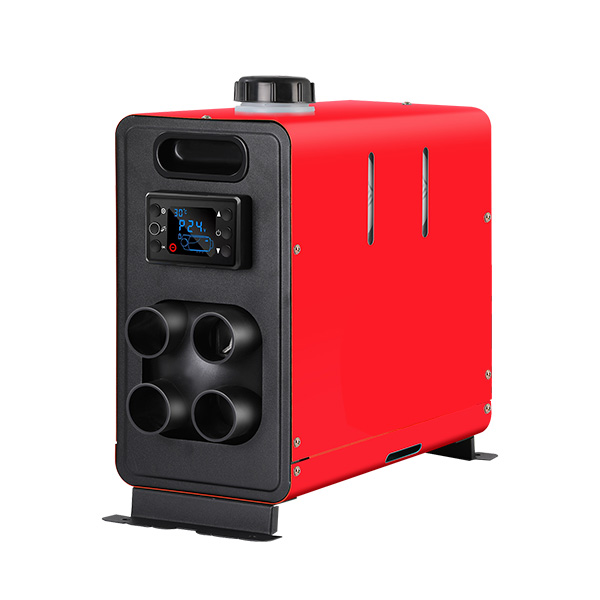
Vertical parking heater integrated unit
The vertical parking heater integrated unit is an effective solution for maintaining warmth in vehicles during cold weather,offering reliable performance and comfort while maximizing space efficiency.
A vertical parking heater integrated unit is designed to provide warmth to a vehicle's interior while it is parked, especially in cold climates. Unlike horizontally mounted units, these heaters are installed vertically, making them suitable for configurations where vertical space is available. These units are widely used in trucks, buses, RVs, and other vehicles that need reliable heating during periods of idling or when stationary in harsh weather.
Key Features:
Design:
Vertical Orientation: Enables installation in vertical spaces, such as compartments or dedicated mounting areas within the vehicle.
Compact and Efficient: The unit is designed to save space while delivering strong heating performance.
Heating Mechanism:
Fuel Type: Typically operates on diesel, gasoline, or alternative fuels, depending on the vehicle’s specific requirements.
Heating Capacity: Capable of maintaining comfortable interior temperatures and protecting the vehicle’s engine and components in cold weather.
Integration:
System Integration: Can be seamlessly integrated into the vehicle’s existing heating and ventilation systems, allowing for user-friendly operation.
Control Interface: Equipped with an intuitive control panel for easy temperature adjustments, timer settings, and operational modes.
Efficiency and Safety:
Energy Efficiency: Designed to maximize fuel usage while minimizing emissions, helping to reduce overall operating costs.
Safety Features: Includes safety mechanisms like overheat protection, flame monitoring, and automatic shutdown for reliable and safe operation.
Applications:
Commercial Vehicles: Trucks, buses, and delivery vans, where drivers need to stay warm during long stops or overnight stays without running the engine.
Recreational Vehicles (RVs): Used to heat RVs or motorhomes during cold-weather camping or extended parking periods.
Specialty Vehicles: Suitable for construction machinery, agricultural equipment, and vehicles used in remote areas, where cold weather can affect both comfort and equipment functionality.
Advantages:
Comfort: Ensures a warm interior, improving comfort for drivers and passengers during cold weather stops.
Engine Protection: Prevents engine freezing and damage by keeping components warm during extended periods of inactivity.
Space Utilization: The vertical design allows for optimized use of space in vehicles with restricted horizontal mounting options.
Fuel Efficiency: Vertical heaters are typically more fuel-efficient than keeping the vehicle idling, making them cost-effective over time.
Installation and Maintenance:
Professional Installation: To ensure proper integration with the vehicle's systems, it is recommended that a qualified technician install the unit.
Routine Maintenance: Regular maintenance is required to ensure optimal performance. This includes inspecting fuel lines, filters, and heating elements for wear or damage.
Safety Considerations:
Ventilation: Proper ventilation is crucial to prevent exhaust gas buildup and ensure good air quality within the vehicle.
Monitoring: Regularly check the heater's performance for any signs of malfunction or wear to maintain safe operation.
Compliance: Ensure that the unit complies with local emission standards and safety regulations.






